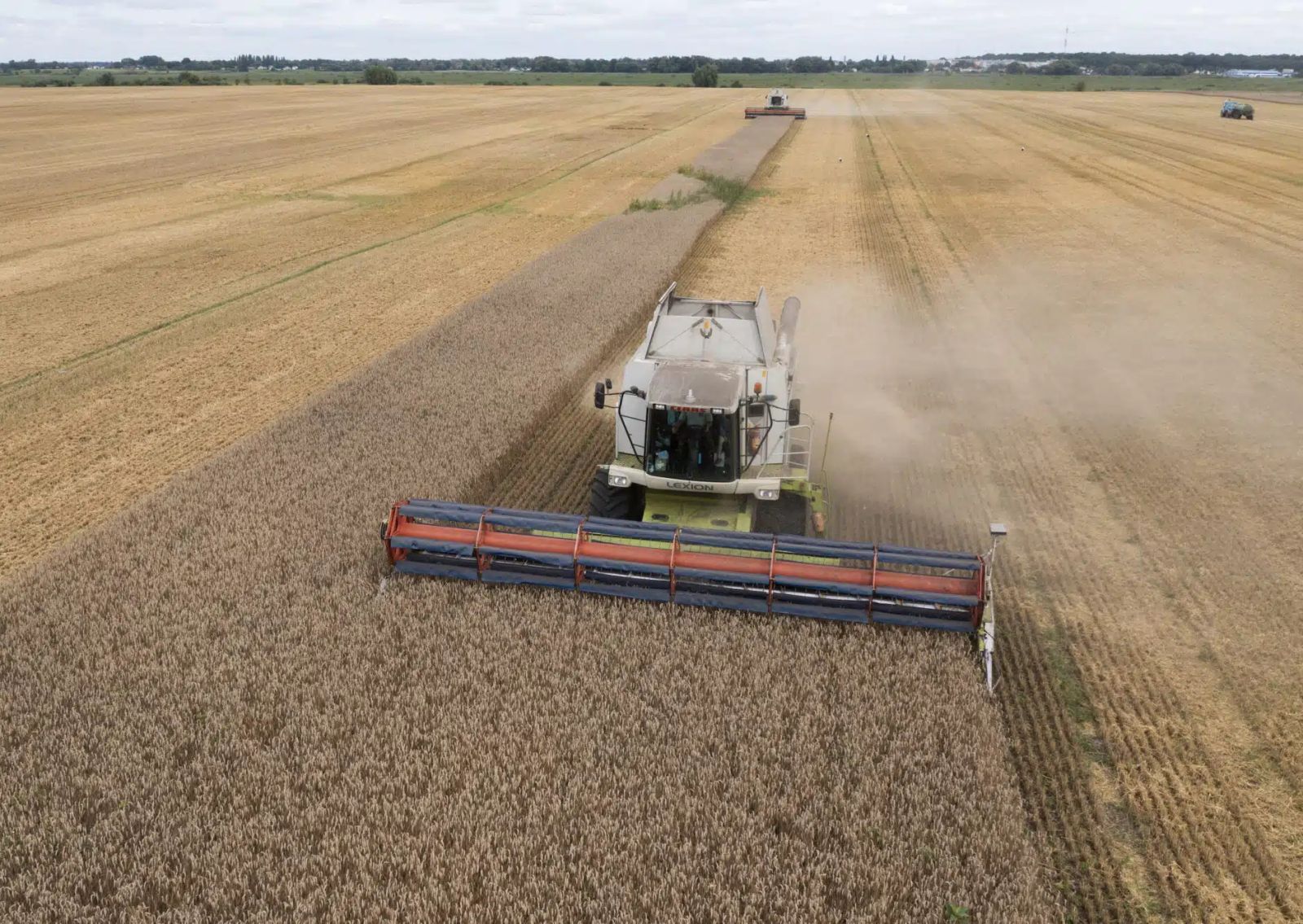Mid-term effects of Black Sea Grain Initiative expected, limited immediate impact
ALBAWABA – The collapse of the Ukraine grain deal, also known as the Black Sea Grain Initiative, will have little immediate impact, but will create market tensions and drive food prices in the mid-term, according to an Agence France-Presse (AFP) report released Tuesday.
Notably, the Black Sea Grain Initiative allowed the export of more than 32 million metric tons of Ukrainian grain since the deal was brokered back in July 2022.
The Ukraine grain agreement was brokered by Turkey and United Nations (UN) officials, to enlist Russia in an effort to clear a route for bulk carriers through the Black Sea to export Ukrainian grain.
In exchange, mediators agreed to multiple Russian demands. Chief among which included guarantees that Ukrainian grains are to be exported to the most food-vulnerable countries and that Russian fertilizers and grains are also allowed access to global markets.
However, Western sanctions on Russia impeded the implementation of the second demand. Whereas exported Ukrainian grain was not going to the intended target markets under the agreement, Russia claimed.
Both Russia and Ukraine are bread baskets that, combined, account for nearly one-quarter of the world’s supply of wheat and grains in general.

Under the grain initiative, Ukraine has exported more than 32 million metric tons of grain.
Suspension of the agreement risks disrupting the world’s supply of wheat and other grains and put more pressure on prices, further exhausting the world’s poorest and more vulnerable economies. Especially with Ukraine’s grain shipments not making it to these countries, as it was originally intended, according to Putin.
Little immediate impact
Back in February 2022, when Russia invaded Ukraine, shipping in the Black Sea was cut off.
Notably, the Black Sea is the main export route for Ukrainian agricultural products.
Today, the situation is very different, according to Agence France-Presse (AFP).
Ukraine was the world's number one exporter of sunflower seed oil and the fourth-largest wheat and corn exporter.

Understandably, Ukraine’s exit from the global market sent prices to record highs in May.
However, the opening of the export corridor on August 1, 2022, under the Black Sea Grain Initiative, helped ensure supplies for importing nations and bring down prices.
However, since the war has begun, Ukraine’s wheat output is forecast to drop to 17.5 million metric ton in the 2023-2024 season from 33 million tons in the 2021-2022 season.
For corn, production is expected to fall to 25 million tons from 42 million tons.
"In 2023-2024, Ukraine should export six million tons less of wheat and 10 million tonnes less of corn," Gautier Le Molgat, an analyst at Agritel, told AFP. Agritel is specialized in data and analysis on agricultural markets.
Nonetheless, it is currently harvest season in the northern hemisphere.
"Future needs will be clear at the end of the harvest," said Le Molgat.
"It is a calm period on the markets which reacted little to the news of the suspension of the deal," he added.
European wheat futures edged higher, while United States (US) futures declined, AFP reported.
No surprises
Over the past months "we've observed a bottleneck in the Bosphorus with very slow traffic," due in particular to a low number of Russian inspectors for the ships using the corridor, Edward de Saint-Denis reaffirmed to AFP. Saint-Denis is a commodities trader at Plantureux & Associes.

Even before the Ukraine grain deal, the European Union (EU) had created "Solidarity Lanes", land and river routes designed to facilitate the export of EU agricultural products via Europe.
The Farm Foundation, a think tank that specialises in agricultural issues, estimates that half of Ukraine's agricultural exports already takes these routes, as reported by AFP.
"One of the questions that needs to be asked is if the EU, which has taken half of the Ukrainian grain on offer since the start of the conflict, has [the] capacity to re-export these volumes," Olia Tayeb Cherif, research director at the Farm Foundation, told the France-based news agency.
More so, the EU would like to improve its ability to transport by harmonising the rail gauge with Ukraine. "They can increase the tempo a bit, but that doesn't solve the problem of the volumes in question," said Saint-Denis.
Mid-term concerns
There is currently no lack of wheat on the global market. But, "most exportable wheat is in Russia with 12.5 million tonnes of stocks, and it is the cheapest wheat in the world," Damien Vercambre at the Inter-Courtage commodities brokerage noted.
Russia could alleviate part of any shortage on the world market due to the collapse of the Ukraine grain deal. But increasing reliance on Russia could be a bitter pill for many countries.
The EU, which is expected to have a normal harvest, could also help meet the needs of importing countries. But adverse weather could quickly change the outlook, AFP warned.
The wheat and corn markets are also currently in very different positions.
China, the world's top importer of corn, could turn to Brazil, which had a record harvest and is selling at a lower price.
For wheat, the production may be sufficient but a drop in Ukraine's export volumes could create a problem.
"An extended closure of the corridor will have an impact on food price inflation, which will affect food security," said Farm Foundation's Cherif.
Some importing nations are already having difficulty paying current prices, such as Egypt.
The UN's World Food Programme is also at risk of disruption as it sources from Ukraine wheat it supplies to Afghanistan, Yemen and African nations, noted Cherif.









